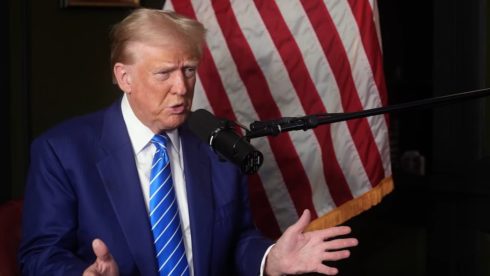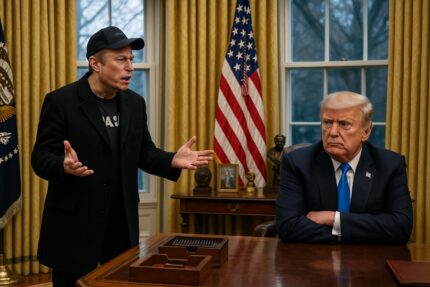Donald Trump, after securing victory over Kamala Harris in the 2024 election, has initiated steps to establish his new administration. With a history of loyalty driving many of his choices, Donald Trump has already announced Susan “Susie” Summerall Wiles as his chief of staff, marking the start of his transition back into the White House. As the transition team vets candidates for key roles, Trump appears to favor a mix of steadfast allies and experienced political figures for his cabinet and other top positions.
This article delves into the prominent figures in consideration for Donald Trump’s top administrative roles, outlining their backgrounds, potential impacts, and expected duties.
Chief of Staff – Susie Wiles: Trump first Appointee
Susie Wiles has become Trump’s first official appointee for his second term, assuming the critical role of White House Chief of Staff. A veteran in Republican politics, Wiles has worked behind the scenes to orchestrate major political wins, including Trump’s recent campaign and previous successes like Rick Scott’s Florida gubernatorial victory. Known as the “ice maiden” for her composed demeanor, Wiles now stands as the first woman in history to occupy this position.
The Chief of Staff’s role demands adept management of the West Wing’s daily operations and coordination among high-profile staff. Wiles’ longstanding experience, including her pivotal roles in Reagan’s campaign and state-level victories, positions her as a stabilizing force capable of managing Trump’s often chaotic inner circle. Her supporters argue that she has the unique ability to command respect and instill order among ambitious White House staff, potentially avoiding the turbulence seen in Trump’s first term.
Attorney General – Loyalty Above All
The choice of Attorney General is one of Trump’s most consequential appointments, as the role will likely shape his approach to law enforcement and judicial matters. In his first term, Trump faced tensions with Attorney Generals Jeff Sessions and William Barr. Now, his likely selection will prioritize loyalty, potentially transforming the Department of Justice’s prosecutorial power to target political adversaries.
Among the front-runners are Texas Attorney General Ken Paxton, an embattled yet ardent Trump ally; Matthew Whitaker, a former acting attorney general; and Mike Davis, known for his combative rhetoric against Trump’s critics. Each brings a different approach and background, yet all share a commitment to conservative legal philosophies. With the Justice Department in their hands, Trump’s administration could usher in a wave of intensified legal actions aligned with his policy goals.
Secretary of Homeland Security – Intensifying Border Security
As Trump pledges a renewed focus on immigration, his choice for Homeland Security will play a pivotal role in fulfilling campaign promises. Former ICE acting director Tom Homan emerges as a strong contender, known for supporting tough immigration enforcement policies, including family separations at the border. His track record aligns closely with Trump’s vision, and his appointment would likely signal a more aggressive stance on immigration than during Trump’s first term.
Others in contention include Chad Wolf and Chad Mizelle, both former DHS officials, and Stephen Miller, Trump’s former advisor, who architected the administration’s strict immigration policies. Whoever assumes the role will have significant influence over U.S. immigration policy, including deportations, asylum regulations, and border security.
Secretary of State – Shaping U.S. Foreign Policy
The Secretary of State role is pivotal for guiding Trump’s foreign policy and managing diplomatic relations. Senator Marco Rubio, who has shifted from a Trump critic to a supporter, stands out for his strong stance on China and experience on the Senate Foreign Relations Committee. His appointment would likely mark an assertive U.S. approach toward geopolitical rivals, especially in Asia.
Robert O’Brien, who served as National Security Advisor in Trump’s first term, and Brian Hook, known for his tough stance on Iran, are also prominent names. Another possibility is Richard Grenell, a loyalist with experience as Ambassador to Germany and Acting Director of National Intelligence. Each candidate would bring a different style, but all share a commitment to Trump’s America First ethos, potentially recalibrating U.S. alliances and partnerships.
Intelligence and National Security Advisors – Reinforcing Loyalty
Trump’s approach to national security could feature familiar faces from his first term. Richard Grenell is considered for the National Security Advisor role, a position that doesn’t require Senate approval. Known for his combative style and loyalty, Grenell would oversee national security policy while maintaining direct influence within Trump’s inner circle.
Other candidates for high-profile intelligence roles include former DNI John Ratcliffe, who has experience with Donald Trump’s intelligence strategy, and Kash Patel, expected to potentially lead the CIA. Patel, who was instrumental in shaping Donald Trump’s national security council, would likely intensify intelligence oversight. Trump’s declared intention to replace FBI Director Chris Wray further indicates his aim to align intelligence agencies more closely with his administration’s priorities.
Defense Secretary and UN Ambassador – Strategic Military and Diplomatic Appointments
In choosing his Defense Secretary, Donald Trump may opt for figures like Michael Waltz, a Congressman with expertise in armed services, or Robert O’Brien, whose national security background could bring diplomatic experience to the Pentagon. Donald Trump has ruled out Mike Pompeo, his former Secretary of State, signaling an interest in fresh yet loyal leadership at the Department of Defense.
For the UN Ambassador role, Donald Trump is reportedly considering Congresswoman Elise Stefanik, whose loyalty and political transformation align with Donald Trump’s vision for U.S. diplomacy. Other names include Morgan Ortagus, a former State Department spokeswoman, and David Friedman, Donald Trump’s former Ambassador to Israel. Whoever is selected will represent Trump’s America First policy on the global stage, balancing assertiveness with a commitment to redefined multilateral relations.
With Trump’s second-term cabinet shaping up, a blend of loyalty, experience, and assertive policy goals appears to be the foundation of his administration’s approach as they prepare for the challenges and opportunities ahead.














